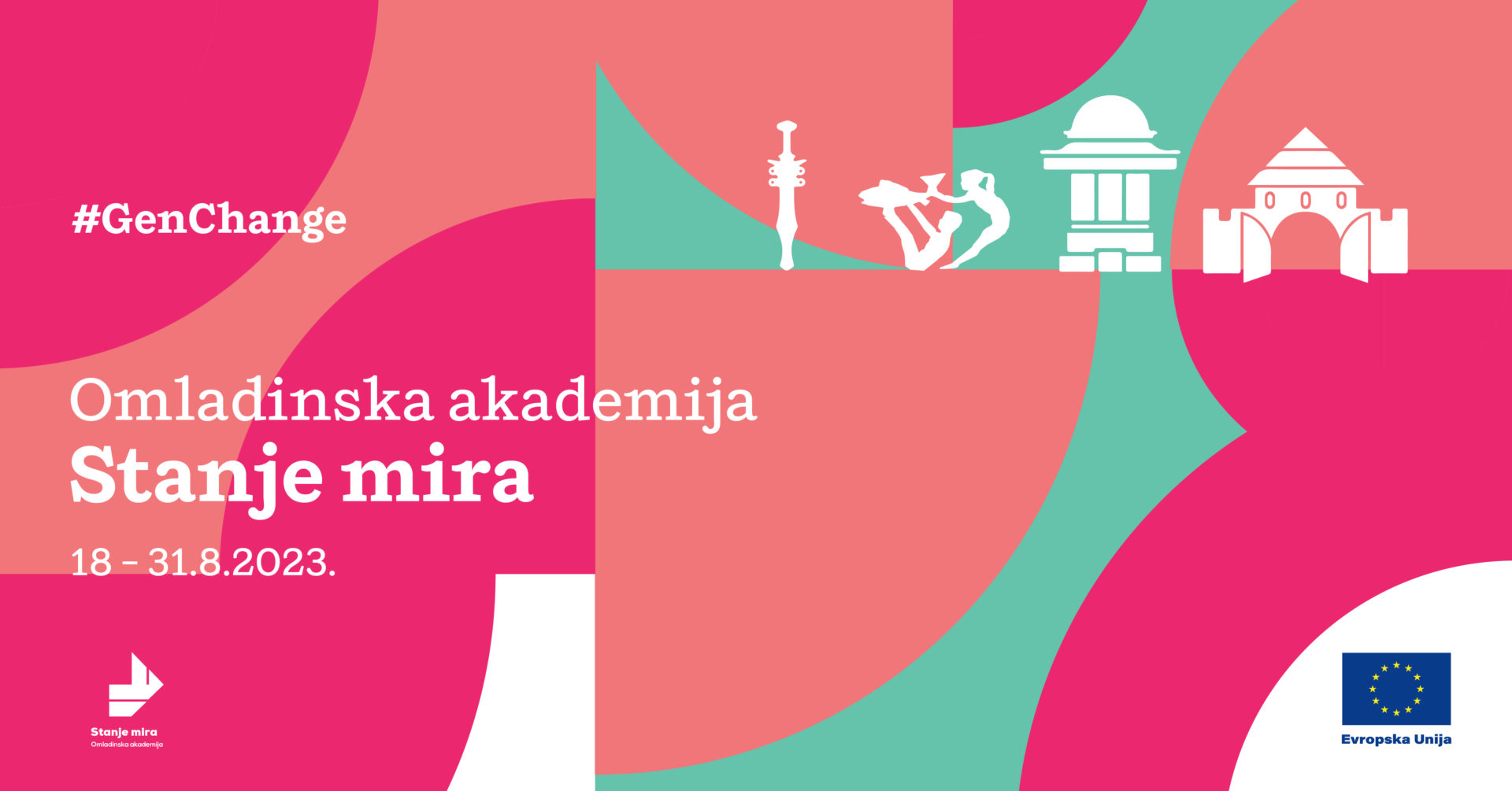
At the first Youth Academy ‘State of Peace,’ organized by the European Union in Bosnia and Herzegovina (EU BiH) in collaboration with the Post-Conflict Research Center (PCRC), 50 young individuals from the Western Balkans region will learn about the state of peace and the building of a democratic society through cultural and artistic events and …
At the first Youth Academy ‘State of Peace,’ organized by the European Union in Bosnia and Herzegovina (EU BiH) in collaboration with the Post-Conflict Research Center (PCRC), 50 young individuals from the Western Balkans region will learn about the state of peace and the building of a democratic society through cultural and artistic events and workshops from August 18 to August 31 in Sarajevo, Tuzla, Vitez, and the Brčko District.
The European Union in Bosnia and Herzegovina, through various youth projects implemented across the country, aims to encourage young people to take a more active role in society’s development and to engage in the reform processes on the path to the European Union. The Youth Academy ‘State of Peace’ will provide young individuals with a unique program of activities, offering them not only the opportunity to acquire new skills through a series of workshops and study visits but also a chance to forge new friendships with peers from the region.
“Reconciliation programs that connect young people from the Western Balkans are not just bridges to the integration of countries into the European Union but foundations for lasting peace, shared prosperity, and a brighter future for the region. Programs like the Youth Academy ‘State of Peace’ empower the next generation to overcome divisions, promoting mutual understanding and collaboration. I sincerely hope that this experience will have a positive impact on all who join this program,” stated Johann Sattler, Head of the European Union Delegation to Bosnia and Herzegovina and the European Union Special Representative to Bosnia and Herzegovina.
Velma Šarić, President and Founder of the PCRC, stated that the goal of the Academy is to contribute to a more prosperous future and the process of confronting the past through a two-week program based on interethnic dialogue and learning about tolerance. This program, along with the interaction and socializing of young individuals from the Western Balkans region, aims to collectively work towards these objectives.
“Young people from Bosnia and Herzegovina, Serbia, Montenegro, and Croatia, who applied and were accepted into the academy, are demonstrating their desire to contribute to the building of a democratic society in the Western Balkans,” explained Šarić. She emphasized that one of the missions of the Center, among other things, is peace education.
According to Šarić, the Academy is yet another innovative educational program that using multidisciplinary techiques directly involves young individuals and teaches them peace activism techniques.
The Youth Academy ‘State of Peace’ begins in Tuzla, where participants will be introduced to the cultural and artistic scene of the city by visiting the International Portrait Gallery, the House and Studio of Ismet Mujezinović, the House of the Bosnian Language, and the House of Literature ‘Meša Selimović.’
In Tuzla, they will have the opportunity to learn how to be more active in their communities and their home countries to assert their rights and contribute to the building of a better society. They will also visit the archaeological park “Neolithic Settlement” and have the chance to spend time at the Panonika Lakes.
Additionally, they will engage in discussions with representatives from the International Commission on Missing Persons (ICMP) about the “Podrinje” identification project and visit the Brčko District and its Memorial for Civilian War Victims.
On the sixth day of the Youth Academy ‘State of Peace,’ participants will arrive in Sarajevo and visit the European Union Office in Bosnia and Herzegovina, getting to know Sarajevo through the “Explore Sarajevo Tour.”
In Sarajevo, they will learn about memorialization, interreligious dialogue, and discover more about the “Ordinary Heroes” project, which portrays stories of rescue and moral courage in times of war, along with an interactive workshop on the behavior of rescuers. They will learn about strategic communication, engage in discussions on education and activism with regional human rights activists. They will visit the Synagogue, the Cathedral of the Sacred Heart, the Bey’s Mosque, the Old Orthodox Church, the Olympic Museum, the Ex-Yu Rock Center, the Museum of Wartime Childhood, and the Tunnel of Hope.
With the aim of creating innovative memorialization practices, young individuals will visit and pay their respects at the Gate in Tuzla, the Kazani in Sarajevo, as well as Ahmići and Osmica in Vitez.
They will indulge into discussions with representatives of international organizations in Bosnia and Herzegovina, local authorities, and regional human rights activists. They will attend the opening of a photo exhibition featuring stories of interethnic marriages nad relationships, engage with women’s rights activists, and watch the film “Colorless,” which explores the lives of children growing up in multi-ethnic families.
At the “Čardaci” Ethno Village, they will have the opportunity to watch a performance by the Youth Theater of Vitez, engage in discussions with young actors, learn about peacebuilding from the PCRC’s representatives, socialize in the recreational complex of Čardaci, and at the same time, familiarize themselves with environmentally sustainable modern business tourism.
After 14 days, the first Youth Academy ‘State of Peace’ concludes in Sarajevo with the hope that young individuals from Bosnia and Herzegovina, Serbia, Montenegro, and Croatia will take a more active role in their communities and collectively strive for their rights and a better future in the region.





